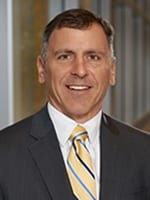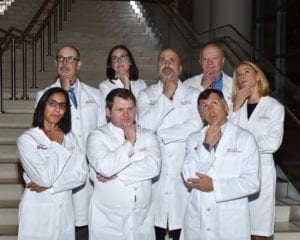Voices: Wellness Q & A with SGO President David E. Cohn, MD, MBA

David E. Cohn, MD, MBA
David E. Cohn, MD, MBA, is the 52nd President of the Society of Gynecologic Oncology (SGO). Dr. Cohn is the Chief Medical Officer at The James Cancer Hospital and Solove Research Institute. For this month’s wellness blog, Dr. Cohn discusses how he includes wellness into his day and how he encourages others to do the same.
1. How do you incorporate wellness activities into your day?
Most importantly, you should know that I am merely a wellness amateur. I continually strive to be better, but like many people, I do not always achieve the goals I set for my personal wellness journey. I believe we are unable to care for our patients unless we take care of ourselves and take care of each other. With that in mind, I try to exercise regularly to give myself time to think and to push my physical boundaries. I have recently worked to incorporate gratitude daily– this allows me to be more empathetic and opens doors to improved relationships with others. Next, I have to work on that part about sleeping more than five hours!
2. What do you do as a leader for your team in regards to wellness?
During my day, I try to engage with others (individuals and teams) at every possible moment. I try to avoid falling into the trap of believing that I am too busy to learn something about (and sharing with) those with whom I interact. I think this improves team dynamics–when you know your team and they know you, difficult decisions are easier to execute.

The Ohio State University gynecologic oncology team.

From left to right: Casey Cosgrove, MD; David O’Malley, MD; Kristin Bixel, MD; David Cohn, MD, MBA; Ritu Salani, MD; Larry Copeland, MD; Floor Backes, MD and Jeffrey Fowler, MD.
3. What wellness advice do you have for members?
The most important advice that my friends and mentors have provided me about wellness is to just start somewhere. I spent the first eight years of my now 19-year career at Ohio State without focusing on wellness and I now realize the implications of that decision. I only wish I would have started earlier. Our default in health care is often to care for our patients at the expense of caring for ourselves or caring for our families and friends. Only when we begin our personal wellness journey can we understand that unless we are well, our patients ultimately suffer. So, if you have not considered starting your own wellness journey, there is no better time to do so than now.
4. What are your goals as SGO President? And what are your strategies for maintaining balance as you have taken on the role of SGO President in addition to your “day job?”
We all have so many jobs that we are expected to perform – the job of caring for patients, of performing research, of being a parent, a spouse, a friend, an administrator. The list goes on, and each of us have to learn how to manage these competing interests. I avoid approaching this from the perspective of how to balance the jobs but rather like to consider how to manage them. Balance implies that if effort is applied in one place that it must come from another. Rather, approaching it from the goal to create meaningful engagement between our interconnected roles, relationships and responsibilities allows additional flexibility for how to structure our days. Ultimately, recognizing that every day or week will be different in how you allocate time is really critical to managing competing interests.
5. What goals do you have for the organization regarding physician/provider wellness?
Continuing to advance the wellness agenda within the SGO is key to my ultimate goal of having it be ingrained in the fabric of the organization. We need to continue to educate our members about the ways to incorporate wellness in our lives, and provide the infrastructure to do so within and outside of the SGO. Success looks like wellness taskforce practices become our new norm, part of our daily routine, in how we interact with each other and our patients. We will never eliminate the need to cultivate wellness. We can aspire to broaden our approaches and develop our wellness “muscle memory” so it becomes second nature in our daily lives.